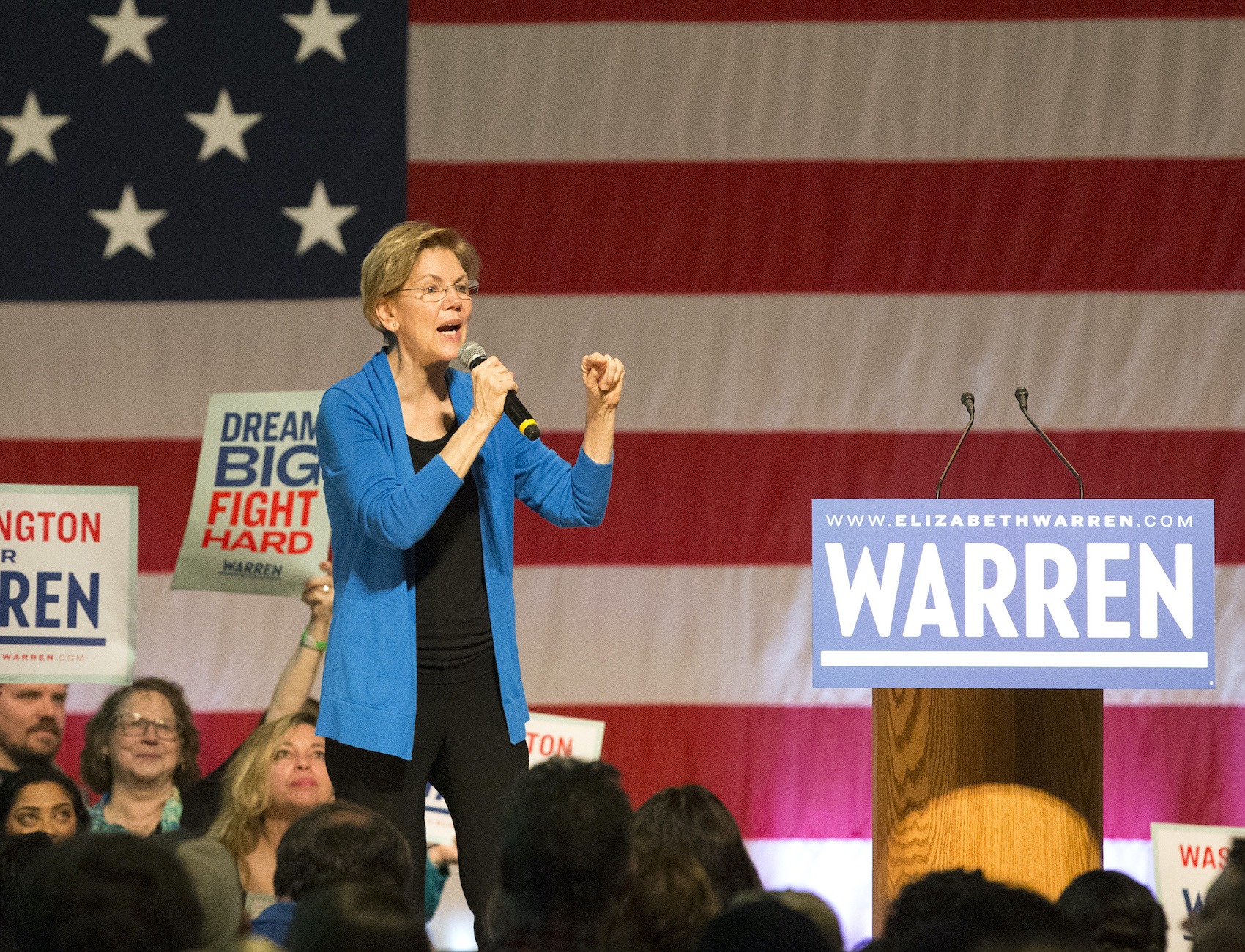Elizabeth Warren Announces Plan to Legalize Marijuana If Elected President
The Democratic candidate also pledged to expunge prior criminal convictions for marijuana and invest in the communities most affected by the war on drugs.

On Sunday, U.S. Senator Elizabeth Warren, who is seeking the Democratic nomination for president, announced her plan to legalize marijuana and undo some of the harms caused by “a century of racist policy.”
“Legalizing marijuana and erasing past convictions won’t fully end the War on Drugs or address its painful legacy,” the plan states, “but it’s a needed step in the right direction.”
Warren’s proposal, released while she campaigned in Denver, calls for full legalization—delisting marijuana as a controlled substance. Currently, marijuana is a Schedule I drug, meaning it is deemed to have no medical benefits and is considered to have a high potential for abuse similar to heroin and LSD.
She says she will support passage of bills like the Marijuana Opportunity Reinvestment and Expungement (MORE) Act, which would remove the drug’s controlled substance designation. If Congress does not take action, Warren pledges to use her executive authority as president to legalize marijuana at the federal level, according to the proposal.
If elected, Warren would appoint people in favor of legalization to lead federal agencies like the Department of Justice and the Drug Enforcement Agency. She would also reinstate Obama-era guidelines on marijuana enforcement, deferring to the states’ authority.
Warren’s proposal also offers protections to immigrants. She will “fight to ensure that immigrants with previous convictions for non-violent drug offenses such as marijuana possession are protected from deportation,” the proposal states, “and eligible for a pathway to citizenship.”
Eleven states have legalized recreational use of marijuana and more than 30 states have legalized medical marijuana. However, federal prohibition means these industries have difficulty accessing banking services, and the businesses generally do not qualify for federal loans.
Warren’s plan would ensure access to traditional interstate banking for cannabis-related businesses and calls for the passage of the Marijuana Freedom and Opportunity Act, introduced by U.S. Senator Chuck Grassley in May. The bill would create a trust fund to support women and minority-owned businesses, fund research on the effects of marijuana legalization, impose marketing restrictions on marijuana products, and offer grants to states to expunge old marijuana-related convictions.
“We cannot allow affluent and predominantly white hedge-funders and capital investors to hoard the profits from the same behavior that led to the incarceration of generations of Black and Latino youth,” the plan reads.
Warren’s plan also calls for the passage of the Marijuana Justice Act, introduced by U.S. Senator Cory Booker in February 2019. Booker’s bill is aimed at addressing past harms caused by marijuana prohibition by expunging federal convictions for marijuana-related offenses and creating a community reinvestment fund of at least $500 million annually to provide grants to “reinvest in communities most affected by the war on drugs.”
Warren’s proposal is similar to that of her rival, and race frontrunner, U.S. Senator Bernie Sanders: Both seek to legalize marijuana, expunge federal convictions, and allocate resources aimed to fix past harms caused by prohibition.
Pete Buttigieg, the former mayor of South Bend, Indiana, and another Democratic presidential hopeful, has said his plan includes legalizing marijuana and expunging prior convictions, while U.S. Senator Amy Klobuchar, also running for the nomination, would legalize marijuana and provide “alternatives to incarceration” for people currently charged or convicted of marijuana offenses.
Both former Vice President Joe Biden and former New York City Mayor Michael Bloomberg, who are also running for the Democratic presidential nomination, are opposed to full legalization. Biden and Bloomberg both have said they support decriminalization of at least personal possession of marijuana and expunging prior federal criminal convictions.
More than 660,000 people were arrested in the United States in 2018 for marijuana-related crimes and roughly 90 percent were arrested for possession alone, according to the Drug Policy Alliance. In 2016, about 40,000 people were incarcerated for marijuana-related crimes.
